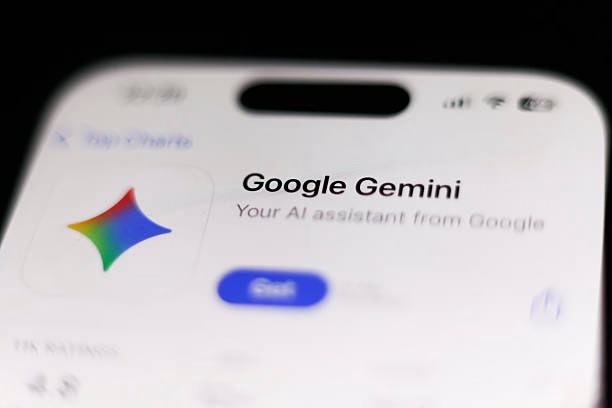Introduction: Google 27th birthday
On September 27, 2025, the world’s most popular search engine celebrates a milestone—Google 27th birthday. What began in a small garage in Menlo Park has grown into one of the most influential companies in human history. Today, Google is not just a search engine but a global ecosystem of products and services that shape how billions of people interact with technology every day.

The company’s rise from a student project called Backrub to Alphabet Inc., valued at over $2 trillion, is a story of innovation, disruption, controversy, and ambition. As we mark Google 27th birthday, it’s worth revisiting its journey, its impact, and its future.
The Origins: From Stanford to the World
The story of Google’s founding is as much about timing as it is about vision. In 1996, two Stanford PhD students, Larry Page and Sergey Brin, developed a research project designed to improve internet search. At the time, search engines like AltaVista, Yahoo!, and Lycos ranked pages by keyword density, often leading to poor results.
Page and Brin’s idea was different: rank web pages by how many other sites linked to them, a concept known as PageRank. This gave rise to a search engine that prioritized relevance and authority over spam.
- 1996: Backrub project begins.
- 1997: Domain name “Google.com” is registered, inspired by the mathematical term “googol,” meaning 1 followed by 100 zeros.
- September 27, 1998: Google officially launches in a Menlo Park garage with $100,000 in seed funding from Sun Microsystems co-founder Andy Bechtolsheim.
What started as an academic experiment was about to become a revolution in information access.
Google in the Early Years: Building the Foundation
By the early 2000s, Google was quickly outpacing its competitors. Several key moves defined its early success:
- 1999: Moves to Mountain View headquarters, known today as the Googleplex.
- 2000: Launches AdWords, forever changing digital advertising.
- 2001: Eric Schmidt appointed as CEO, providing business stability.
- 2004: Google goes public, raising $1.67 billion in one of the most successful IPOs of the decade.
During this period, Google’s culture of “moonshot thinking” began to emerge, with projects like Google Images, Google News, and Gmail expanding beyond search.
The Ecosystem Era: Google Becomes Ubiquitous
By the time it turned 10, Google was no longer just a search engine—it was becoming the backbone of the internet. The company systematically built an ecosystem of interconnected products:
- Search Engine – Today, Google processes over 8.5 billion searches per day, dominating more than 90% of the market.
- YouTube – Acquired in 2006 for $1.65 billion, now the second largest search engine in the world.
- Android OS – Acquired in 2005, now powering more than 70% of the world’s smartphones.
- Chrome Browser – Released in 2008, today commands over 60% global market share.
- Gmail – Launched in 2004, with over 1.8 billion users.
- Google Maps – Released in 2005, fundamentally changed navigation.
By strategically linking these services, Google ensured that once you entered its ecosystem, it became difficult to leave.
Also read, Trump puts 100% Tariff on Branded Drugs: What It Means for Global Pharma and India
Google 27th Birthday: Current Standing
As of Google 27th birthday in 2025, Google remains at the epicenter of global technology.
- Parent Company: Alphabet Inc.
- Market Value: Over $2 trillion.
- Employees: More than 180,000 worldwide.
- Global Reach: Available in over 190 countries.
- Product Portfolio: Search, Gmail, Maps, Drive, YouTube, Android, Chrome, and Google Cloud.
Its impact is so deep that “Google” has become a verb in everyday language.
Innovations That Shaped Google
Google’s ability to innovate has defined its 27-year journey:
- PageRank Algorithm (1990s) – Revolutionized search accuracy.
- AdWords (2000) – Created a new economic model for the internet.
- Google Maps (2005) – Changed navigation forever.
- Android OS (2005) – Made Google central to the mobile revolution.
- YouTube (2006) – Cemented its dominance in video content.
- AI-First Strategy (2016 onwards) – Shifted focus from “mobile-first” to “AI-first.”
Controversies and Criticism
Even as we celebrate Google 27th birthday, the company has faced criticism:
- Antitrust Cases – Accused of monopolistic practices in the U.S. and EU.
- Privacy Concerns – Questions around data collection and surveillance.
- Content Moderation – Accusations of bias on YouTube and search.
- Competition Issues – Constant battles with Apple, Microsoft, Amazon, and Meta.
Despite controversies, Google continues to grow, underscoring its resilience.
Google and Artificial Intelligence
One of the defining features of Google’s next era is its investment in AI. The company’s DeepMind division, as well as its Gemini AI platform, have placed it at the center of global AI competition.
AI is now being integrated into Google Search, Gmail, Maps, and Workspace, signaling a future where AI-assisted productivity becomes the norm.

The Global Impact of Google
Few companies have had as much cultural, economic, and political impact as Google.
- Economically, it powers digital advertising worth hundreds of billions annually.
- Socially, it has changed how we learn, shop, and connect.
- Politically, it faces increasing scrutiny over its influence on elections, free speech, and information access.
In many ways, the story of Google’s 27 years is the story of the modern internet itself.
What Lies Ahead: Google’s Next 27 Years
Looking forward, Google’s next challenges will define whether it remains dominant:
- AI Leadership – Competing with OpenAI, Microsoft, and Anthropic.
- Quantum Computing – Developing next-gen processing capabilities.
- Healthcare – Using AI to revolutionize medicine and diagnostics.
- Sustainability – Aiming to operate carbon-free by 2030.
- Regulation – Navigating growing government oversight.
The company’s mission to “organize the world’s information” is expanding into a mission to shape the future of humanity through technology.
Conclusion: Google 27th birthday
As Google celebrates its 27th birthday, it stands as one of the most important companies of the 21st century. What began as a search engine in a Stanford dorm has become a global institution shaping the way billions live, work, and communicate.
The story of Google’s 27 years is not just about technology—it is about how humans interact with knowledge itself. From search results to AI-driven insights, Google has redefined the pursuit of information.
And if history is any indication, the company’s next 27 years will be just as transformative.



